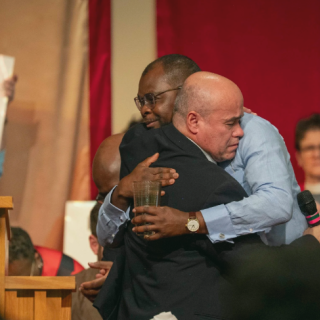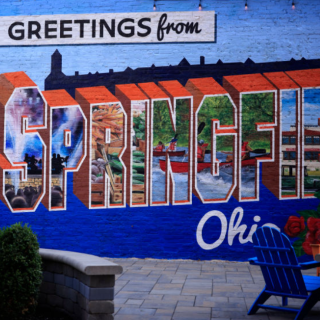Advertisement
Tough times call for tough headlines. We at the Free Press can oblige and rightfully so.
Kroger is the nation’s largest supermarket chain, and arguably Central Ohio’s most popular grocery store.
Yet earlier this week, Cincinnati-based Kroger announced it is ending their $2 more-an-hour “Hero Pay” after May 16th, even as it continues to run expensive commercials thanking its store employees.
Also this week their corporate office released a proxy statement for their June 2020 (virtual of course) shareholders meeting, as reported by the national political news site Popular Information, which is authored by journalist Judd Legum. The Securities and Exchange Commission (SEC) requires companies to provide a proxy statement to shareholders.
Proxy statements reveal CEO compensation, and the Popular Information article states:
“A proxy statement for Kroger's 2020 shareholders meeting reveals Rodney McMullen's compensation in 2019. McMullen received $21,129,648 in total compensation for that year.
Other top executives also had huge paydays. Chief Operating Officer Michael Donnelly was paid $10,329,684, nearly doubling his compensation from 2018. J. Michael Schlotman, who retired in April 2019 as Chief Financial Officer, was paid $8,467,423. Schlotman's replacement, Gary Millerchip, was paid $4,142,280.”
In comparison, the average pay for a Kroger employee in 2019 was $26,790. The ratio of their CEO’s annual pay compared to the median pay of a Kroger employee is 789 to 1.
McMullen’s pay, like many CEOs, is performance based. So his compensation for 2021 should get a big boost considering Kroger profits are soaring, rising 30 percent in March, according to Popular Information. This also means shareholders will see a nice bump in future dividends.
What’s more, Kroger has $2 billion in cash reserves. It gets more disturbing: McMullen’s pay is also based on creating more “free cash flow” – so cutting store employees pay means more money for McMullen and shareholders.
Not surprising is how McMullen, who of course is working from home, is a huge fan of Trump and in April was selected to sit on the Trump’s Great American Economic Revival Industry Group.
What Kroger did not acknowledge in their proxy statement to shareholders is how their store employees are beginning to die from the virus. The Detroit Free Press reported this week that 60-year-old James Andres died after contracting the virus – he had just started at Kroger in March. A Kroger spokesperson told the paper four other employees in the metro Detroit area have also died from the virus.
Kroger also announced a manager in Tennessee passed from the virus.
Here in Columbus the fears of Kroger employees have played out on Reddit. We reported this back in March, and here is what some Kroger employees had to say:
“Happy to still have a job but also nervous to keep going to work every day and exposing myself. Kind of just coming to terms with the fact that myself and coworkers will undoubtedly get this virus.”
“We are trying. Please stop yelling at us. Please stop cussing at us. Please stop taking things from people’s cart when they’re not looking. I’m sorry I’m the 5th store you've been to and I don’t have your Cage Free String Cheese or Grass-fed Oysters. Please remember, after we feed you with everything we have, we have to find groceries ourselves. We’re really trying.”
Kroger essentially has two types of pay grades for store employees. Those who are union and those who are not. The Kroger Ohio union is the United Food and Commercial Workers 1059 based in Columbus and they represent 18,000 employees, with some working in Kroger warehouses and packing plants, and some of these members also work for Meijer.
Non-union Kroger employees make roughly $10 an hour and they tend to be teenagers and those newly hired by Kroger, which by the way has hired thousands since the pandemic hit.
UFCW 1059 President Randy Quickel spoke to us back in March as he was feverishly demanding Kroger corporate to provide PPEs and hazard pay. Quickel, along with UFCW Presidents from Kentucky, Indiana and Michigan, wrote McMullen a letter in response to cutting “Hero Pay.”
They wrote that statements by Kroger about “starting the path to recovery” and “beginning to see a return to normal” do not reflect the reality of the increasing number of cases and deaths across the country.
“This is no time for the Company to turn its back on the very people who’ve gotten Kroger through this pandemic thus far with no end in sight. We ask that you continue the Hero Pay, as your competitors have done, through the month of May, with an open mind that Hero Pay must continue as long as COVID-19 threatens the health and safety of our members and the communities they serve,” they stated.



